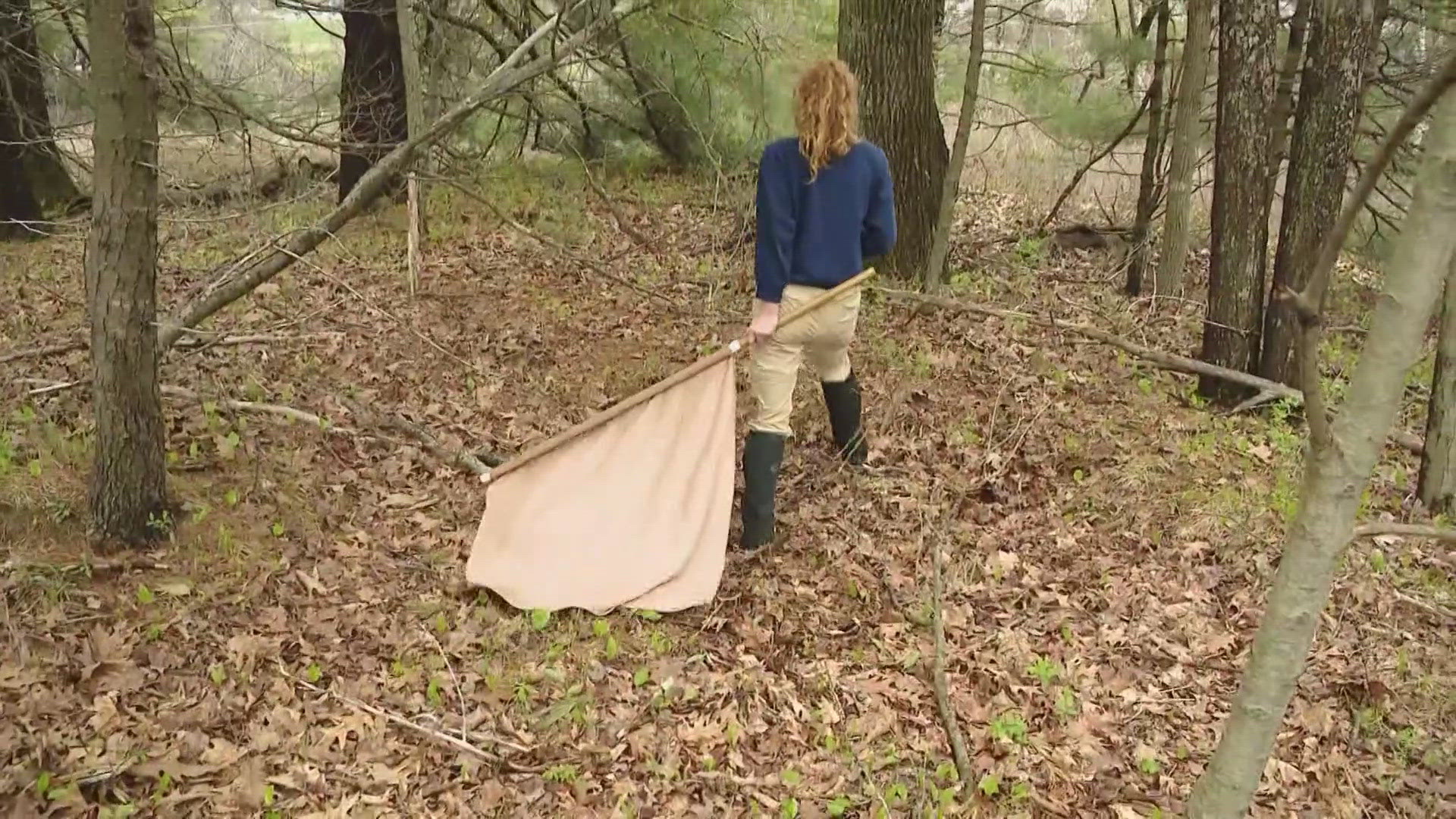SCARBOROUGH, Maine — May is Lyme Disease Awareness Month, as disease-carrying ticks become more active over the next few weeks. The Maine Center for Disease Control and Prevention on Monday reported 316 cases of Lyme disease so far this year, as the state came off a record 2023, when there were nearly 3,000 cases.
Studies are underway in the state tracking tick movement and potential new treatment.
Experts at the MaineHealth Institute for Research said it's difficult to predict if we are in for another record year of Lyme disease cases, as weather patterns play a key role.
Chuck Lubelczyk, a vector ecologist at the institute, leads a team of researchers tracking ticks throughout Maine. He said a warmer winter led to ticks emerging earlier this year.
"We were seeing them as early as the last week of February," Lubelczyk said. "Unfortunately that is becoming more normal than not."
He also said the next few weeks will determine how active ticks will be, as they need conditions of at least 80 percent humidity to survive.
"If we get no rain between now and the beginning of June it's going to make it harder for the ticks to get a foothold this season," Lubelczyk said.
Dr. Rob Smith, an infectious disease specialist and the director of institute's Vector-Borne Disease Lab, is leading an assessment of a new blood test to help pinpoint Lyme disease in its early stages. The lab is participating in the Tufts Lyme Disease Initiative, a multi-million dollar effort at the Boston-area university to eradicate Lyme by 2030.
Phase 3 trials are underway on a vaccine developed by Pfizer and partner Valneva. Dr. Smith is assisting at the vaccine's trial site at Pen Bay Medical Center in Rockport. The vaccine could hit the market in a few years.
"These trials are looking at both protectiveness for kids, and also for adults and they are looking at the booster question," Dr. Smith said.
Institute researchers are in the second year of a study on the island of Isle au Haut. This summer, scientists will distribute feed that contains a medication to treat parasites to see if it will reduce the number of ticks on deer and field mice.

